
Jaffa: The Timeless Port City
Jaffa, one of the oldest port cities in the world, is a must-visit destination for any traveler to Israel. Nestled along the Mediterranean coast, Jaffa offers a unique blend of ancient history and vibrant modern life, making it a fascinating place to explore. Wander through the narrow, winding alleys of the Old City, where you'll find charming stone buildings, art galleries, and bustling markets. The Old City's Clock Tower and St. Peter's Church provide stunning viewpoints to marvel at the panoramic views of the coastline and Tel Aviv's skyline. The Flea Market is a treasure trove of antiques, vintage items, and local crafts, making it the perfect spot for a leisurely afternoon of shopping and people-watching. Jaffa's culinary scene is a delightful mix of traditional Middle Eastern flavors and contemporary cuisine. Savor fresh seafood at one of the many seaside restaurants, or enjoy a hearty plate of hummus and falafel at a local eatery. Don't miss out on the famous Jaffa oranges, which are renowned for their sweet, juicy taste. The city's rich history is evident in its many historical landmarks, such as the ancient Jaffa Port, which dates back thousands of years. Here, you can take a stroll along the promenade, watch fishermen at work, or embark on a boat tour to see the city from the water. Jaffa's mix of cultures, religions, and traditions creates a vibrant and welcoming atmosphere that will leave a lasting impression on any visitor.
Local tips in Jaffa
- Visit the Jaffa Flea Market early in the morning to avoid crowds and find the best deals.
- Wear comfortable shoes as the old city's cobblestone streets can be uneven and hilly.
- Try local delicacies like Jaffa oranges and fresh seafood at the bustling restaurants near the port.
- Use the Tel Aviv-Jaffa Promenade to easily walk or bike between Jaffa and central Tel Aviv.
- Check out the local art scene with numerous galleries and studios showcasing contemporary Israeli artists.
Neighbourhoods in Jaffa
Jaffa: The Timeless Port City
Jaffa, one of the oldest port cities in the world, is a must-visit destination for any traveler to Israel. Nestled along the Mediterranean coast, Jaffa offers a unique blend of ancient history and vibrant modern life, making it a fascinating place to explore. Wander through the narrow, winding alleys of the Old City, where you'll find charming stone buildings, art galleries, and bustling markets. The Old City's Clock Tower and St. Peter's Church provide stunning viewpoints to marvel at the panoramic views of the coastline and Tel Aviv's skyline. The Flea Market is a treasure trove of antiques, vintage items, and local crafts, making it the perfect spot for a leisurely afternoon of shopping and people-watching. Jaffa's culinary scene is a delightful mix of traditional Middle Eastern flavors and contemporary cuisine. Savor fresh seafood at one of the many seaside restaurants, or enjoy a hearty plate of hummus and falafel at a local eatery. Don't miss out on the famous Jaffa oranges, which are renowned for their sweet, juicy taste. The city's rich history is evident in its many historical landmarks, such as the ancient Jaffa Port, which dates back thousands of years. Here, you can take a stroll along the promenade, watch fishermen at work, or embark on a boat tour to see the city from the water. Jaffa's mix of cultures, religions, and traditions creates a vibrant and welcoming atmosphere that will leave a lasting impression on any visitor.
When is the best time to go to Jaffa?
Iconic landmarks you can’t miss
Jaffa Flea Market
Explore the Jaffa Flea Market, a vibrant hub of antiques, crafts, and local cuisine in the heart of Tel Aviv-Yafo's historic district.
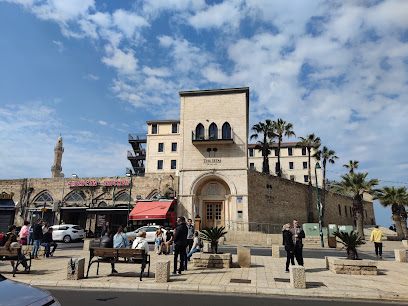
The Clock Tower
Discover the Clock Tower in Tel Aviv-Yafo - a historic landmark blending the charm of the past with the vibrancy of modern life.
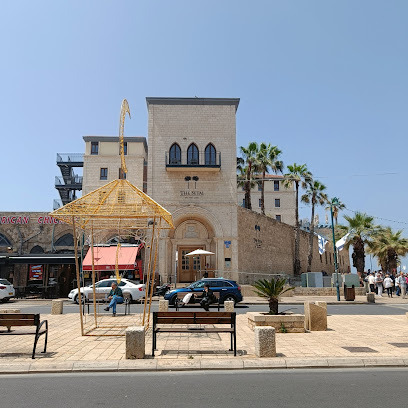
Park HaTachana
Explore the unique blend of history and modernity at Park HaTachana, Tel Aviv's vibrant landmark for shopping, dining, and cultural experiences.
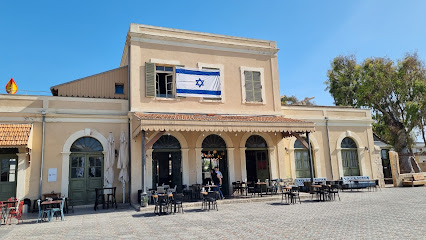
נמל יפו
Discover the enchanting blend of history, culture, and breathtaking views at Nemal Yafo, a vibrant port area in Tel Aviv-Yafo.
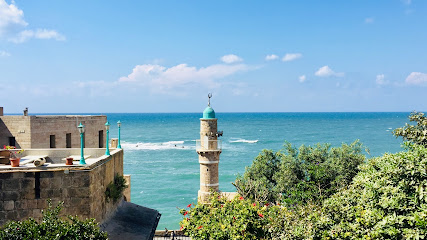
Old Jaffa
Experience the rich history and vibrant culture of Old Jaffa, a historic landmark in Tel Aviv-Yafo, where art meets the Mediterranean.
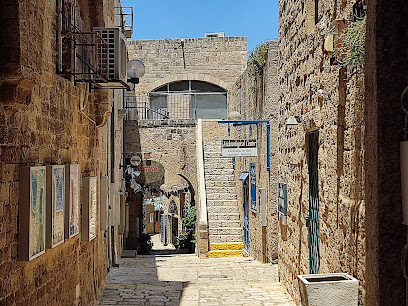
Midron Yaffo Park
Explore Midron Yaffo Park, a serene coastal haven in Tel Aviv-Yafo, perfect for relaxation, scenic views, and cultural experiences.
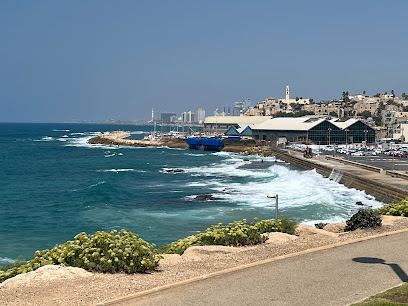
St. Peter's Church
Discover the architectural splendor and spiritual serenity of St. Peter's Church in Tel Aviv-Yafo, a must-visit landmark for all travelers.
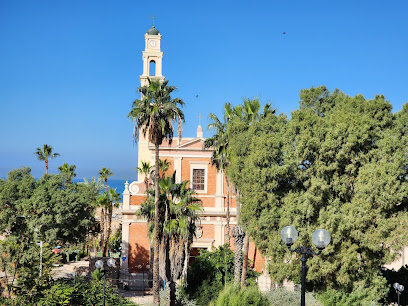
Abrasha Park
Experience the tranquility and stunning views of Abrasha Park, a serene oasis in the heart of Tel Aviv, perfect for relaxation and exploration.
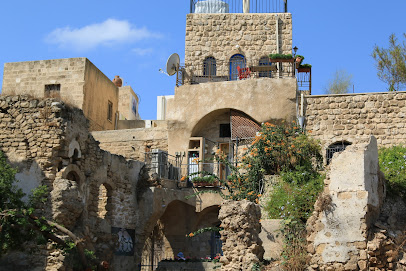
Wishing Bridge
Discover the enchanting Wishing Bridge in Tel Aviv, where dreams are whispered, and memories are made against a stunning city backdrop.
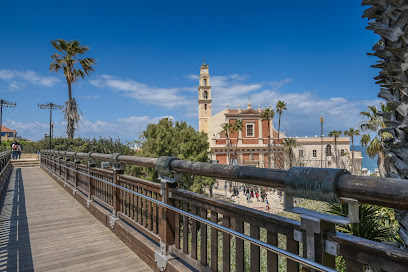
Ilana Goor Museum
Discover the Ilana Goor Museum, a modern art haven in Jaffa showcasing unique artworks and stunning views of the Mediterranean coast.
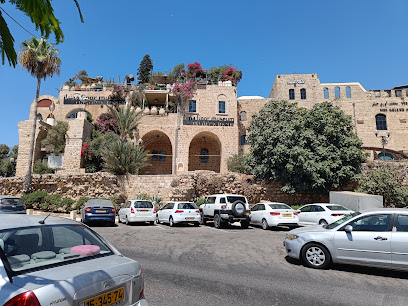
Suspended Orange Tree
Explore the Suspended Orange Tree in Tel Aviv, a stunning sculpture that combines nature and art, offering a peaceful retreat amidst the city's vibrancy.
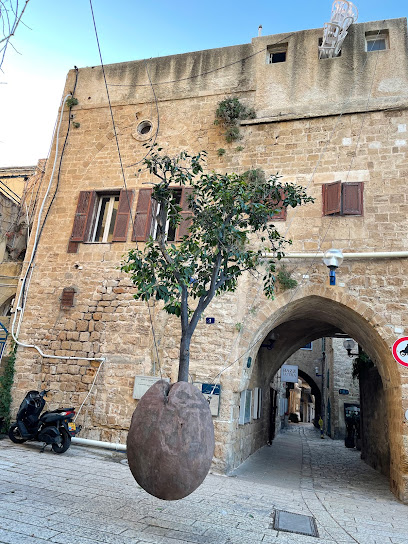
Jaffa Light
Discover the enchanting Jaffa Light, a historical landmark offering breathtaking views, rich culture, and vibrant local experiences in Tel Aviv-Yafo.
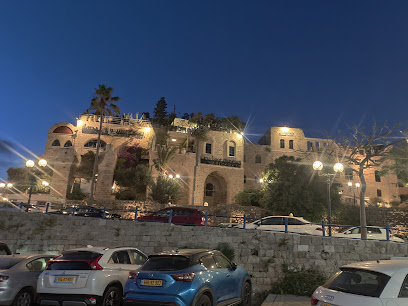
Immanuel Church
Discover the architectural beauty and serene ambiance of Immanuel Church, a must-visit Lutheran church in Tel Aviv-Yafo.
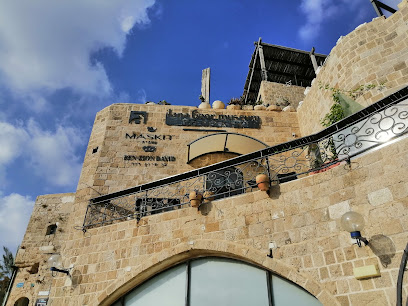
Old Jaffa Hostel
Discover the historic allure and modern comforts at Old Jaffa Hostel in the heart of Tel Aviv-Yafo, a perfect blend for every traveler.

Jaffa Museum
Explore the rich history and cultural heritage of Jaffa at the Jaffa Museum, a hidden gem in Tel Aviv-Yafo.
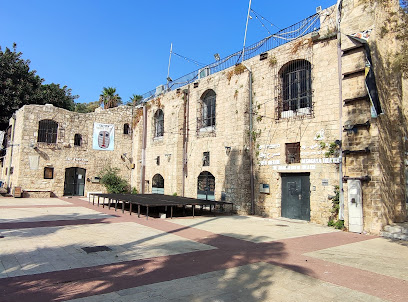
Unmissable attractions to see
Yarkon Park
Explore the lush landscapes and diverse attractions of Yarkon Park, a must-visit urban oasis in the heart of Tel Aviv-Yafo.
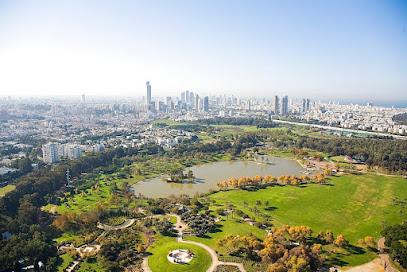
Yad Vashem
Explore Yad Vashem, Israel's Holocaust memorial, and engage with powerful narratives of memory, history, and resilience in the heart of Jerusalem.
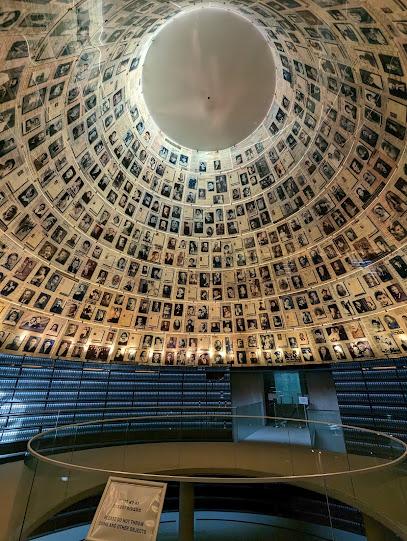
Jaffa Flea Market
Discover the Jaffa Flea Market in Tel Aviv-Yafo, a vibrant hub of antiques, local crafts, and delicious street food, offering a unique cultural experience.
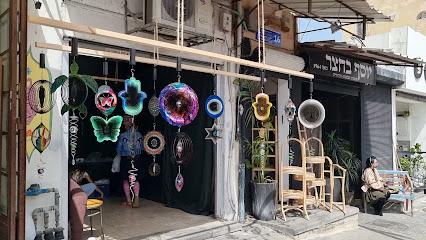
The Clock Tower
Discover the enchanting Clock Tower in Tel Aviv-Yafo, a historical landmark that beautifully blends rich heritage with the vibrancy of modern city life.
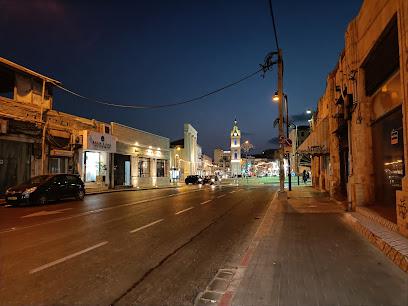
Tel Aviv Museum of Art
Explore the stunning collection of contemporary and classic art at the Tel Aviv Museum of Art, a cultural gem in Israel's vibrant city.
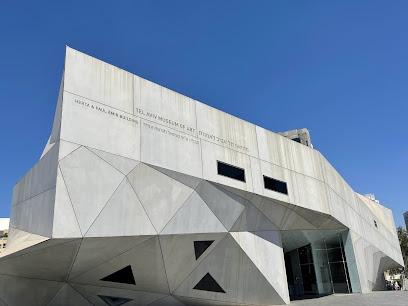
Park HaTachana
Explore the rich history and modern charm of Park HaTachana, a vibrant cultural hub in the heart of Tel Aviv-Yafo, blending past and present beautifully.
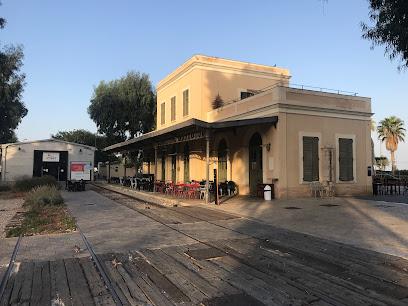
Levinski Market
Explore Levinski Market in Tel Aviv, a vibrant hub of fresh produce, local delicacies, and unique cultural experiences that embody the spirit of Israel.
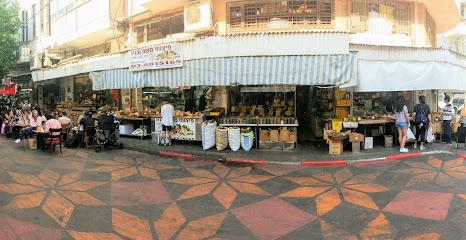
HaBima Square
Discover the cultural essence of Tel Aviv at HaBima Square, where art, theater, and nature converge in a vibrant urban setting.
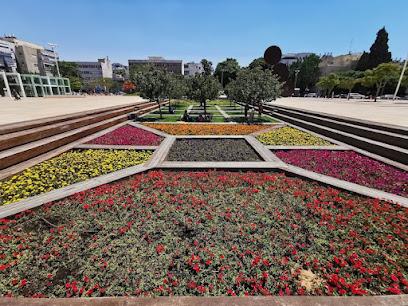
נמל יפו
Explore the stunning waterfront of Nemal Yafo, where history meets modern charm in Tel Aviv-Yafo's vibrant tourist destination.
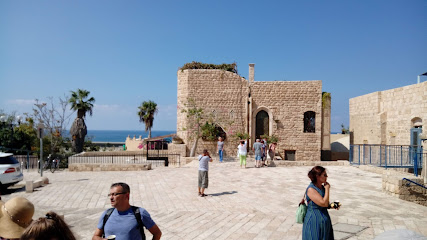
Tel Aviv Port
Explore Tel Aviv Port: A vibrant waterfront destination with stunning views, delectable dining, and a rich cultural scene that perfectly captures the spirit of Tel Aviv.
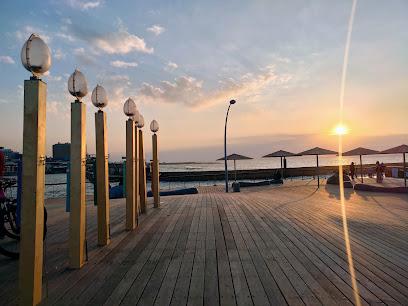
ANU Museum of the Jewish People
Explore the rich heritage and culture of the Jewish people at the ANU Museum in Tel Aviv, a captivating journey through history and art.
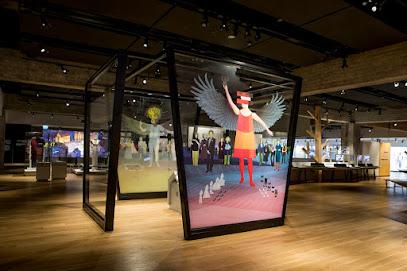
Apollonia National Park
Explore Apollonia National Park in Herzliya, where history meets breathtaking coastal views and scenic hiking trails.
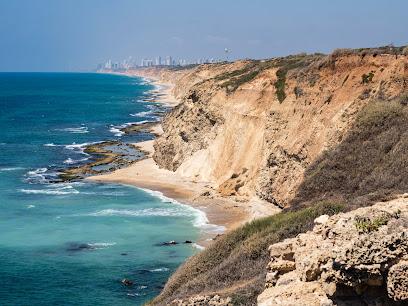
Midron Yaffo Park
Discover the tranquil Midron Yaffo Park, a serene retreat in Tel Aviv-Yafo, blending nature with stunning Mediterranean views and rich cultural experiences.
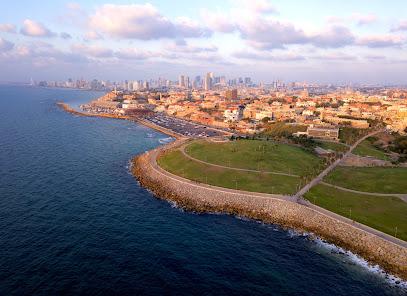
Eretz Israel Museum
Explore the rich history and diverse cultures of Israel at Eretz Israel Museum in Tel Aviv-Yafo.
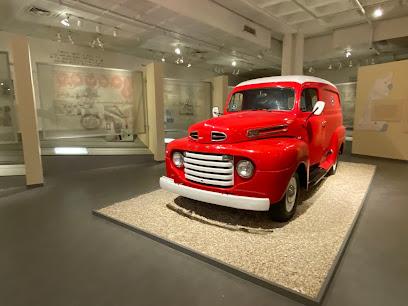
Bezalel Market
Explore Bezalel Market in Tel Aviv for a delightful fusion of local flavors, artisanal crafts, and cultural experiences in a lively marketplace.
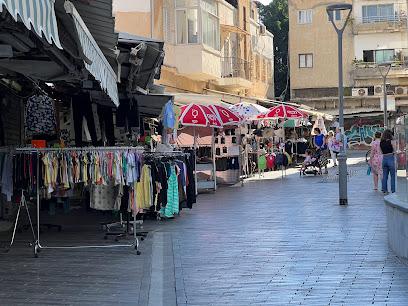
Essential places to dine
The Old Man and the Sea
Experience authentic Mediterranean flavors at The Old Man and the Sea in Tel Aviv-Yafo—where delicious seafood meets stunning sea views.
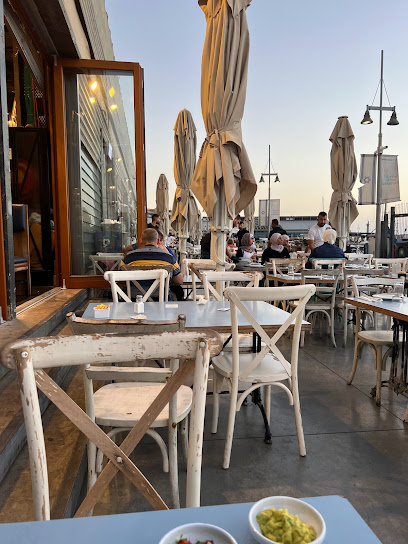
Manta Ray
Discover Manta Ray: An exquisite seafood restaurant in Tel Aviv offering breathtaking views and delectable Mediterranean cuisine.
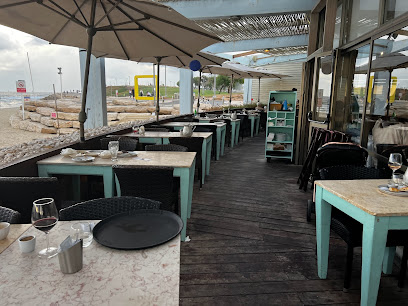
HaKosem
Discover HaKosem in Tel Aviv: A must-visit destination for authentic falafel lovers seeking an unforgettable culinary experience.
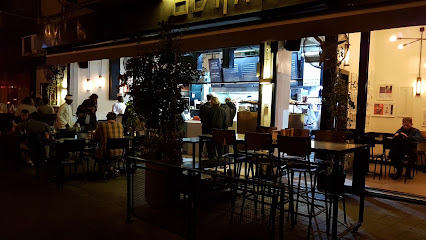
Cafe Puaa
Discover Cafe Puaa in Tel Aviv: where local flavors meet eclectic ambiance for an unforgettable dining experience.
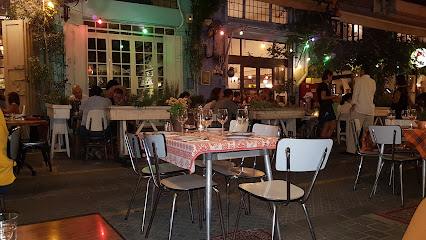
Abu Hassan
Experience authentic Israeli cuisine at Abu Hassan in Tel Aviv – home to some of the best hummus you'll ever taste.
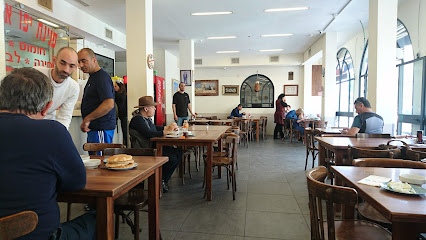
Yaffo Tel Aviv
Experience the pinnacle of fine dining at Yaffo Tel Aviv - where local flavors meet contemporary culinary innovation.
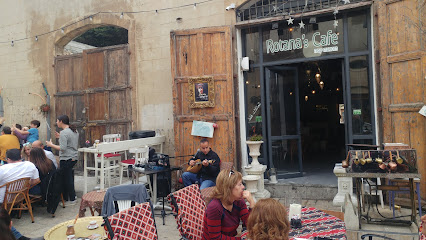
Samarkand
Experience authentic Uzbek cuisine at Samarkand in Tel Aviv – where tradition meets flavor in every dish.
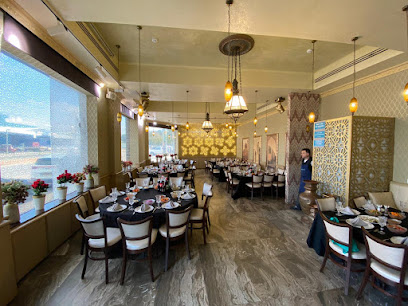
Italian restaurant Gemma
Discover authentic Italian flavors at Gemma in Tel Aviv – where every dish tells a story of culinary passion.
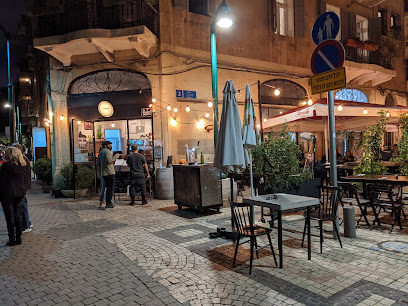
Faruk BaShuk
Discover culinary excellence at Faruk BaShuk, where modern Israeli cuisine meets vibrant atmosphere in Tel Aviv-Yafo.
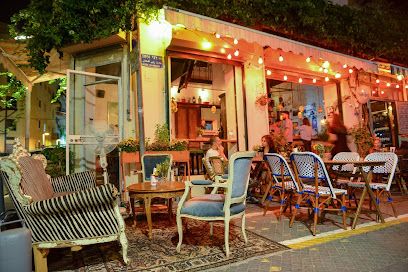
Onza
Experience the vibrant culinary scene at Onza in Tel Aviv—where innovative dishes meet unique cocktails in a chic setting.
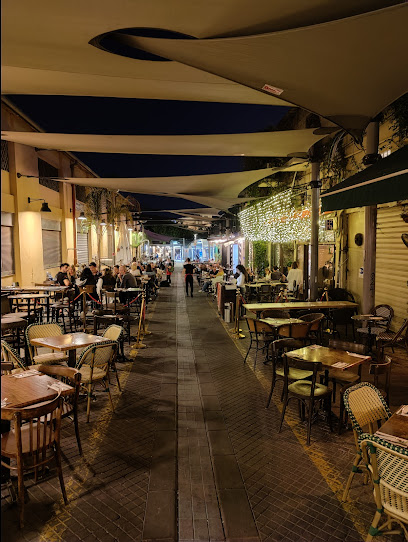
Kalamata
Discover Kalamata: A vibrant Greek restaurant in Tel Aviv serving authentic Mediterranean cuisine amidst a lively atmosphere.
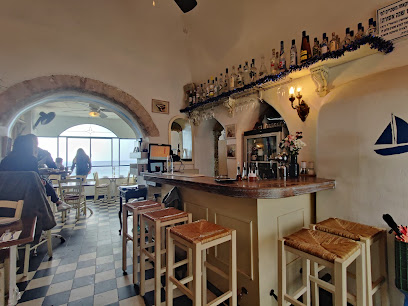
Hummus Abu Hassan
Discover authentic Middle Eastern flavors at Hummus Abu Hassan in Tel Aviv-Yafo, where every bite tells a story of tradition and taste.
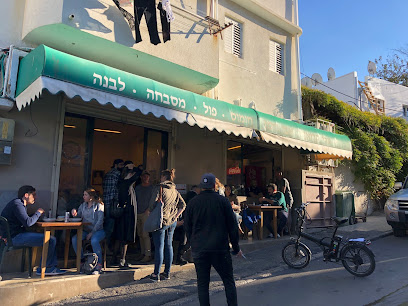
ראיסה בשוק הפשפשים
Experience the vibrant flavors of Jaffa at Raisa - where culinary creativity meets bistro charm in a lively flea market setting.
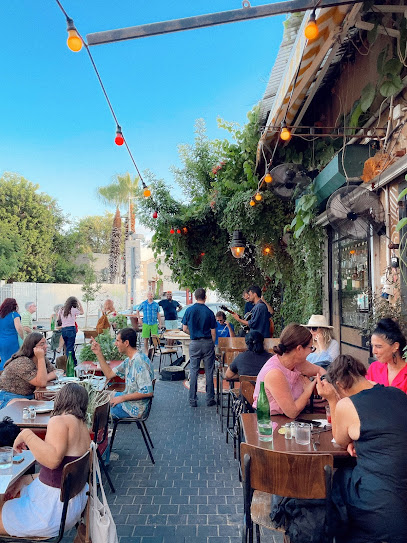
Akbar
Experience vibrant flavors and lively atmosphere at Akbar, Tel Aviv's top restaurant and bar destination for tourists.
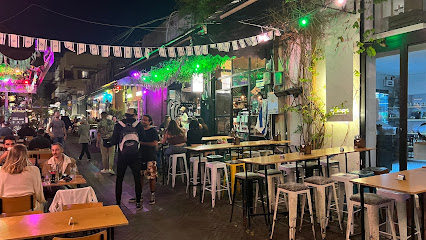
Night Kitchen
Experience the best of Tel Aviv's nightlife at Night Kitchen - where culinary innovation meets vibrant social atmosphere.
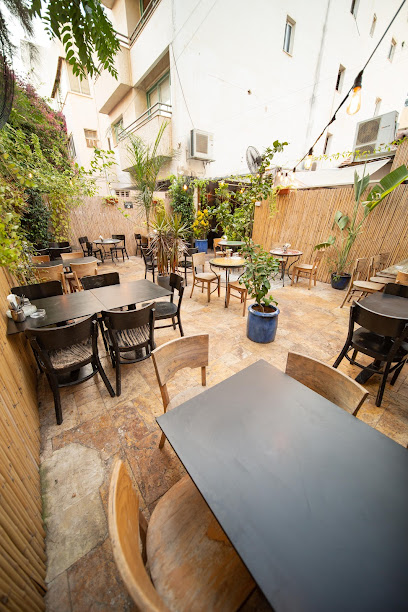
Markets, malls and hidden boutiques
Jaffa Flea Market
Discover unique treasures and local culture at the Jaffa Flea Market, a must-visit destination in Tel Aviv-Yafo.
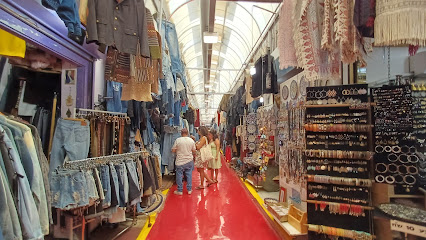
Maccabi Tel Aviv FC Official Shop
Explore the Maccabi Tel Aviv FC Official Shop, a sports haven filled with jerseys, memorabilia, and the vibrant spirit of Israeli football.
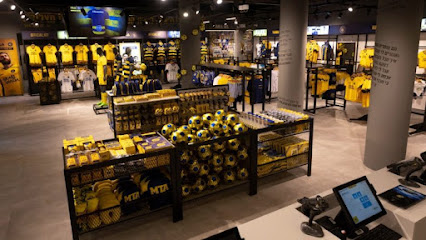
ננו תכשיטים
Discover unique handcrafted jewelry and souvenirs at Nano Jewelry in Tel Aviv, a perfect stop for memorable gifts that capture the essence of Israel.
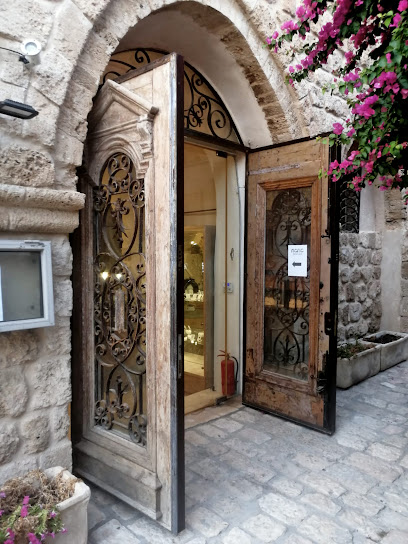
Jóias - Jewelry Shop
Explore the artistry of Tel Aviv at Jóias Jewelry Shop, where unique designs meet exceptional craftsmanship in an inviting atmosphere.
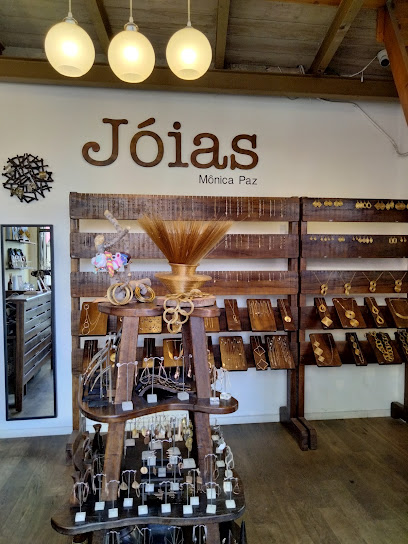
Zielinski & Rozen
Explore the exquisite fragrances of Zielinski & Rozen, a premier perfume boutique in Tel Aviv offering an unforgettable olfactory experience.
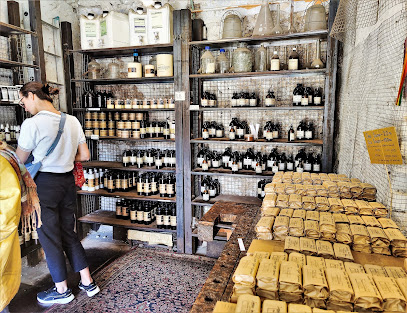
Adina Plastelina Jewelry
Explore Adina Plastelina Jewelry in Tel Aviv-Yafo, where unique handmade pieces meet rich cultural artistry for unforgettable souvenirs.
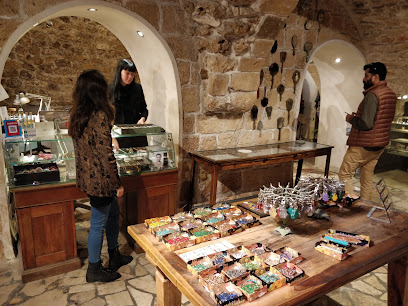
Kwintner Jewelry Design - קוינטנר עיצוב תכשיטים
Explore exquisite handcrafted jewelry at Kwintner Jewelry Design, where artistry meets culture in the heart of Tel Aviv.
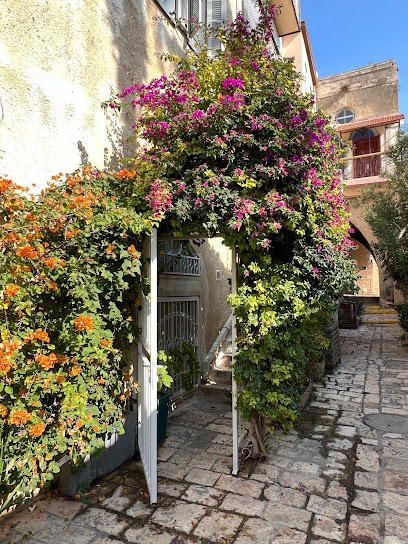
VONBERG JAFFA וונברג יפו
Explore the essence of modern fashion at VONBERG JAFFA, the ultimate clothing store in Tel Aviv-Yafo, where style and quality meet.
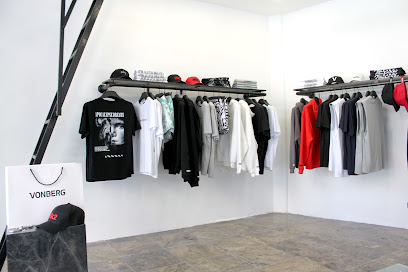
shopping channel
Discover a diverse range of home goods, furniture, and electronics in Tel Aviv-Yafo's vibrant shopping channel for a unique shopping experience.
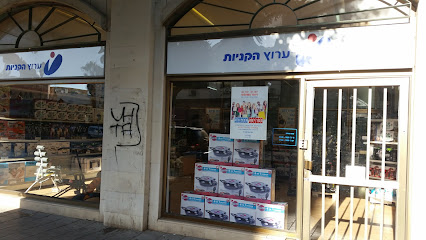
BoBo
Discover unique fashion pieces at BoBo, Tel Aviv's chic clothing and dress store, where style meets creativity in a vibrant atmosphere.
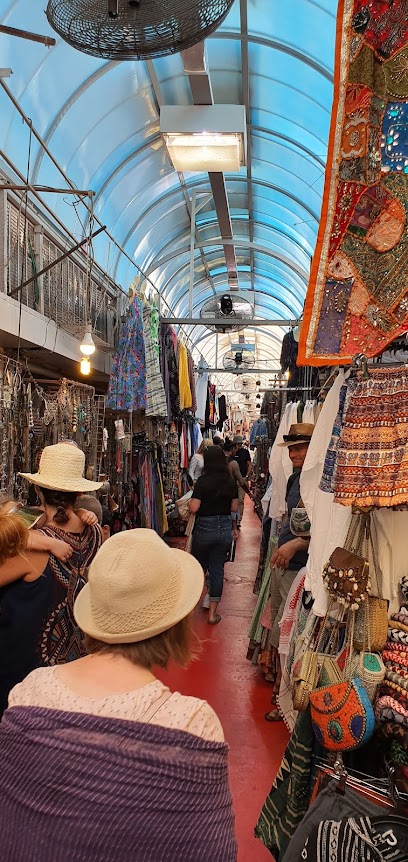
marioneta מריונטה - בוטיק לילדים
Experience the joy of shopping at Marioneta, a charming boutique for children's clothing, shoes, and toys in Tel Aviv-Yafo.
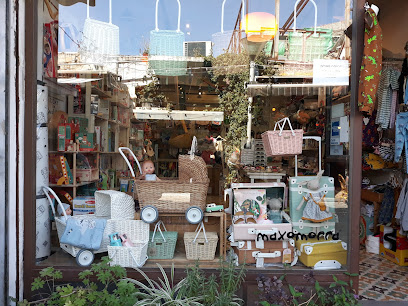
Magasin III Jaffa
Explore the vibrancy of contemporary art at Magasin III Jaffa, a premier gallery in the heart of Tel Aviv-Yafo, showcasing innovative works that inspire and provoke thought.
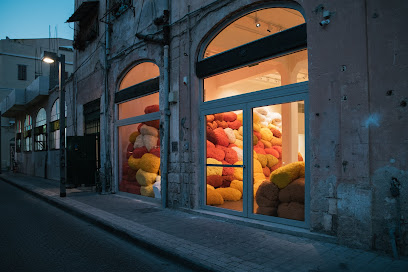
Hilweh Market
Explore Hilweh Market in Tel Aviv-Yafo for unique gifts, exquisite handicrafts, and a taste of local artistry that captures the essence of Israel.
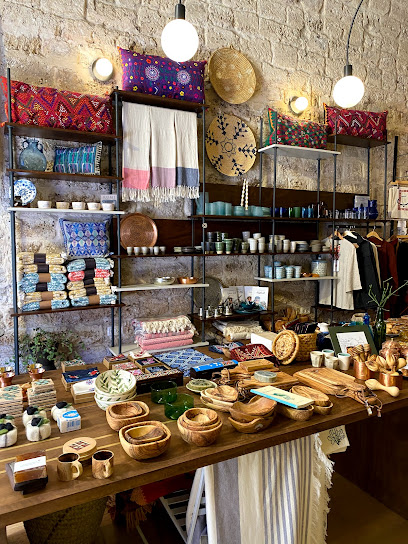
White Petal Store jewelry
Explore the exquisite craftsmanship at White Petal Store, a must-visit jewelry haven in Tel Aviv-Yafo, offering unique handcrafted pieces.
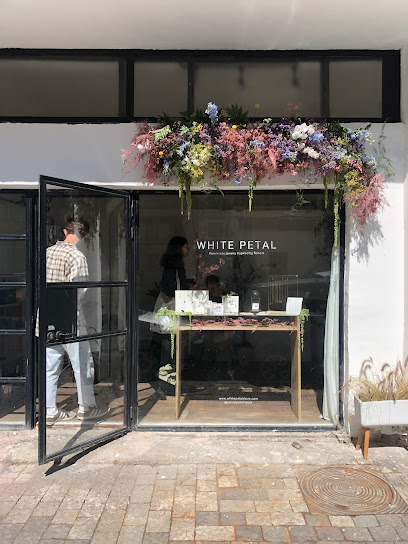
סופי Sofi - חנות עיצוב לבית
Discover unique home decor and design treasures at Sofi in the heart of Tel Aviv's Shuk HaPishpeshim, where style meets culture.
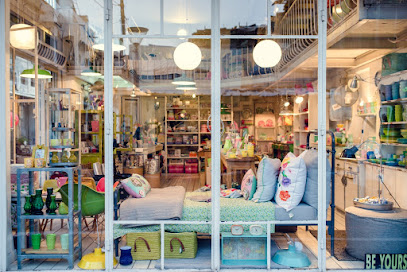
Essential bars & hidden hideouts
Teder.fm
Discover Teder.fm, a lively beer garden and cultural hotspot in Tel Aviv, where art, music, and delicious pizzas come together.
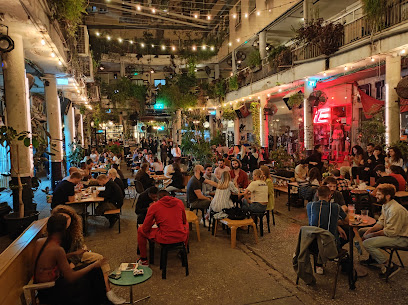
Shaffa Bar
Experience the vibrant nightlife at Shaffa Bar, a stylish bar in Tel Aviv offering an eclectic menu and a dynamic atmosphere for all visitors.
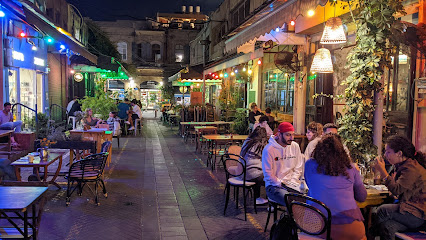
Bellboy
Experience the vibrant cocktail scene at Bellboy, Tel Aviv's chic bar known for innovative drinks and a lively atmosphere.
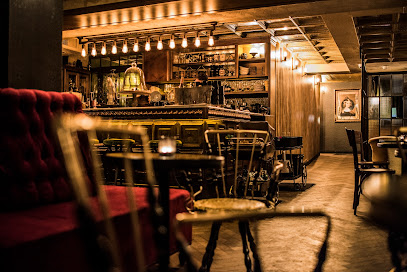
The Prince - הנסיך
Experience the lively ambiance and delicious flavors at The Prince, a standout bar and restaurant in the heart of Tel Aviv.
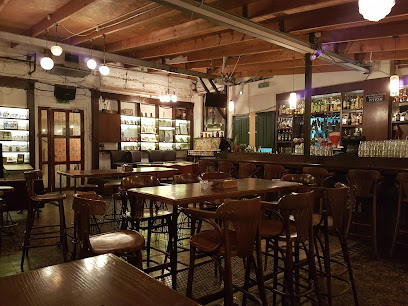
Onza
Discover the vibrant flavors of Tel Aviv at Onza, a restaurant that blends tradition with modern culinary artistry for an unforgettable experience.
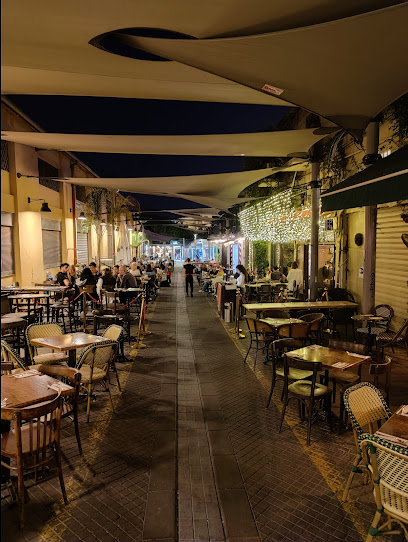
Shuffle Bar
Discover Shuffle Bar in Tel Aviv’s Florentin: a dynamic gastropub offering a unique blend of vegan delights, craft drinks, and vibrant atmosphere.
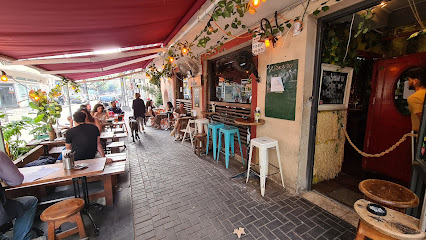
ראיסה בשוק הפשפשים
Discover the lively atmosphere of Raisa in Jaffa's Flea Market, where innovative cocktails and delicious tapas await.
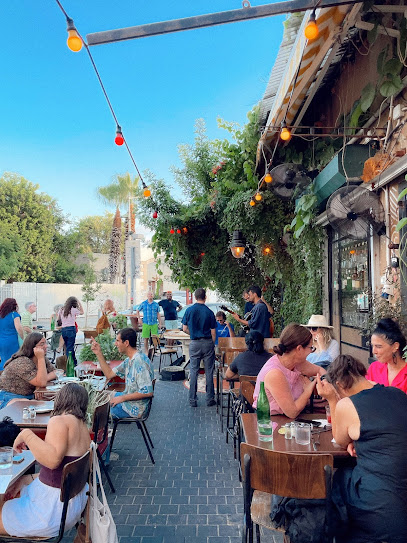
Akbar
Experience the vibrant nightlife at Akbar, Tel Aviv's premier bar and restaurant, known for its delicious cocktails and lively atmosphere.
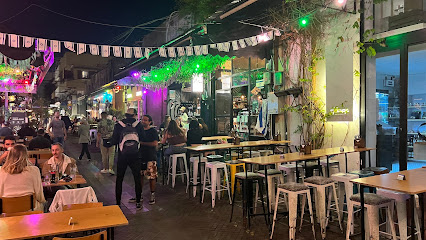
Par Derriere
Discover Par Derriere, a charming wine bar in Tel Aviv offering exquisite brunch, local wines, and an inviting atmosphere for food lovers.
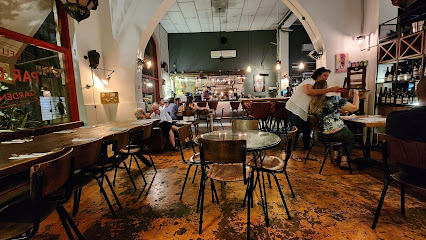
Sputnik bar
Discover the lively Sputnik Bar in Tel Aviv, where eclectic vibes, tasty drinks, and great music create an unforgettable nightlife experience.
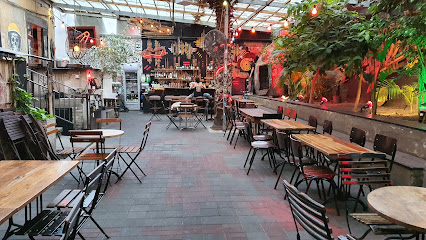
Hoodna Bar
Discover the vibrant atmosphere of Hoodna Bar in Tel Aviv, a premier live music venue offering eclectic performances and delicious drinks.
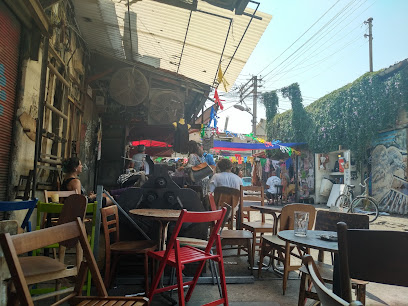
Potion Bar בר וויסקי בתל אביב
Discover the vibrant Potion Bar in Tel Aviv, a must-visit destination for whiskey lovers and nightlife enthusiasts with an electric atmosphere.
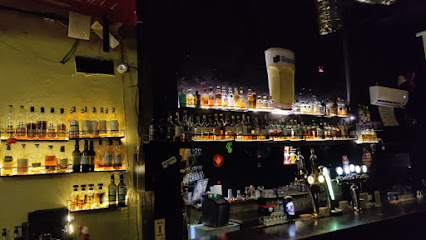
BeerBazaar Jaffa
Discover the best of Israel's craft beer scene at BeerBazaar Jaffa, where local brews and a vibrant atmosphere await in Tel Aviv-Yafo.
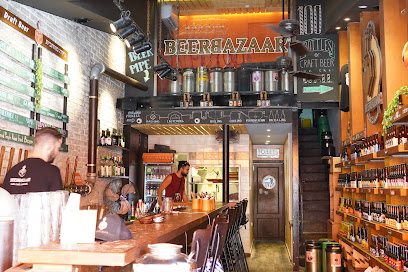
Margoza Bar
Discover Margoza Bar, a lively gastropub in Tel Aviv-Yafo, offering a unique blend of vibrant nightlife and delicious cuisine.
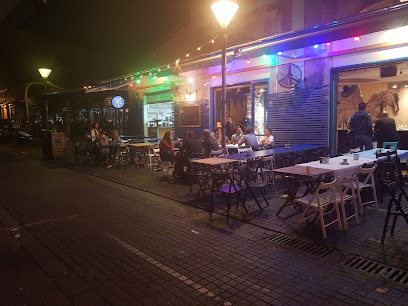
Local Phrases
-
- Helloשָׁלוֹם
[Shalom] - Goodbyeלְהִתְרָאוֹת
[Lehitraot] - Yesכֵּן
[Ken] - Noלֹא
[Lo] - Please/You're welcomeבבקשה
[Bevakasha] - Thank youתודה
[Toda] - Excuse me/Sorryסליחה
[Slicha] - How are you?איך אתה?
[Eich Ata?] - Fine. And you?טוב. ואתה?
[Tov. Ve'ata?] - Do you speak English?האם אתה מדבר אנגלית?
[Ha'Im Ata Medaber Anglit?] - I don't understandאני לא מבין
[Ani Lo Mevin]
- Helloשָׁלוֹם
-
- I'd like to see the menu, pleaseאני רוצה לראות את התפריט, בבקשה
[Ani Rotze La'rot Et Ha'tafrid, Bevakasha] - I don't eat meatאני לא אוכל בשר
[Ani Lo Ochel Basar] - Cheers!לחיים!
[Lechaim!] - I would like to pay, pleaseאני רוצה לשלם, בבקשה
[Ani Rotze Leshalem, Bevakasha]
- I'd like to see the menu, pleaseאני רוצה לראות את התפריט, בבקשה
-
- Help!עזרה!
[Ezrah!] - Go away!לך לך!
[Lech Lech!] - Call the Police!קרא למשטרה!
[Kara La'mishtara!] - Call a doctor!קרא לרופא!
[Kara La'rofe!] - I'm lostאני אבוד
[Ani Avud] - I'm illאני חולה
[Ani Choleh]
- Help!עזרה!
-
- I'd like to buy...אני רוצה לקנות...
[Ani Rotze Liknot...] - I'm just lookingאני רק מסתכל
[Ani Rak Mestakel] - How much is it?כמה עולה זה?
[Kama Ole Ze?] - That's too expensiveזה יקר מדי
[Ze Yakar Madi] - Can you lower the price?אתה יכול להוריד את המחיר?
[Ata Yachol Lehored Et Ha'machir?]
- I'd like to buy...אני רוצה לקנות...
-
- What time is it?מה השעה?
[Ma Ha'sha'a?] - It's one o'clockהשעה אחת
[Ha'sha'a Achat] - Half past (10)חצי (עשר)
[Chatzi (Esre)] - Morningבוקר
[Boker] - Afternoonצהריים
[Tzohorayim] - Eveningערב
[Erev] - Yesterdayאתמול
[Etmol] - Todayהיום
[Hayom] - Tomorrowמחר
[Mahar] - 1אחד
[Echad] - 2שניים
[Shnayim] - 3שלושה
[Shlosha] - 4ארבעה
[Arba'a] - 5חמישה
[Chamisha] - 6שישה
[Shisha] - 7שבעה
[Sheva'a] - 8שמונה
[Shmoneh] - 9תשעה
[Tish'a] - 10עשרה
[Eser]
- What time is it?מה השעה?
-
- Where's a/the...?איפה נמצא...
[Eifo Nimtza...] - What's the address?מה הכתובת?
[Ma Ha'ktoovet?] - Can you show me (on the map)?אתה יכול להראות לי (על המפה)?
[Ata Yachol Leharaot Li (al Ha'mapa)?] - When's the next (bus)?מתי האוטובוס הבא?
[Matai Ha'otobus Ha'ba?] - A ticket (to ....)כרטיס (אל...)
[Kartis (El...)]
- Where's a/the...?איפה נמצא...
History of Jaffa
-
Jaffa, one of the world's oldest ports, boasts a history that dates back to at least 7,500 BCE. According to Greek mythology, it was founded by Japheth, son of Noah, after the biblical flood. The port city is mentioned in various ancient texts, including those from Ancient Egypt and the Hebrew Bible, highlighting its long-standing significance in regional trade and culture.
-
Jaffa came under Egyptian control during the New Kingdom period, around the 15th century BCE. The city is mentioned in the Amarna letters as Yapu, indicating its strategic importance to the Egyptians. Archaeological findings, such as a large scarab bearing the cartouche of Pharaoh Amenhotep III, underscore its role in the Egyptian imperial network.
-
Jaffa fell into the hands of the Philistines around the 12th century BCE. It later became part of the territory of the Tribe of Dan, one of the ancient Israelite tribes. The city is frequently mentioned in the Bible, notably in the stories of Jonah, who set sail from Jaffa, and King Solomon, who used Jaffa’s port to import the cedars of Lebanon for the construction of the First Temple in Jerusalem.
-
Under Persian rule, Jaffa thrived as a major port and urban center. The arrival of Alexander the Great in the 4th century BCE marked the beginning of the Hellenistic period, during which the city was known as Joppa. This era saw the blending of Greek and local cultures, influencing its architecture, language, and daily life.
-
Jaffa became part of the Roman Empire in 63 BCE when Pompey the Great conquered the region. The city played a significant role during the Roman and subsequent Byzantine periods, serving as a key port for trade and military movements. Notable Roman-era structures, including an amphitheater and aqueducts, bear witness to its importance during this time.
-
In the 7th century CE, Jaffa was captured by the Rashidun Caliphate and became part of the Islamic world. The city changed hands several times during the Crusades, with both Christian and Muslim forces recognizing its strategic value. Fortifications from this era, including the Crusader citadel, reflect the turbulent and contested nature of the period.
-
Jaffa flourished under Ottoman rule from the early 16th century until World War I. It became a vibrant center of commerce and culture, with significant developments in infrastructure, including the construction of mosques, churches, and schools. The city's population grew, comprising a diverse mix of Muslims, Christians, and Jews.
-
Following the fall of the Ottoman Empire, Jaffa came under British control as part of the Mandate for Palestine from 1920 to 1948. The city experienced significant modernization and became a focal point for Arab-Jewish tensions. The 1948 Arab-Israeli War led to significant demographic changes, with many Arab residents fleeing or being expelled. Jaffa was subsequently incorporated into the newly established State of Israel and merged with the rapidly growing city of Tel Aviv.
-
Today, Jaffa is a vibrant district of Tel Aviv, known for its rich cultural heritage and historical landmarks. The Old City, with its narrow winding streets, ancient buildings, and bustling flea market, attracts tourists and locals alike. Jaffa's diverse population continues to reflect its multicultural past, making it a unique and dynamic part of modern Israel.
Jaffa Essentials
-
Jaffa is easily accessible from various parts of Israel. The nearest international airport is Ben Gurion Airport, located approximately 20 kilometers southeast of Jaffa. From the airport, you can take a taxi, which takes around 25-30 minutes to reach Jaffa. Alternatively, you can use the train service from Ben Gurion Airport to Tel Aviv HaHagana Station and then take a local bus or taxi to Jaffa. There are also regular bus services and shared taxis (sherut) operating between major cities and Jaffa.
-
Jaffa is well-connected by public transportation. Local buses run frequently and connect to various parts of Tel Aviv and other nearby areas. Taxis are readily available and can be hailed on the street or ordered via mobile apps. For a more local experience, consider renting a bicycle or an electric scooter, which are popular and environmentally friendly options. Walking is also a great way to explore Jaffa's narrow streets and historic sites.
-
The official currency in Israel is the Israeli New Shekel (ILS). Credit cards are widely accepted in most hotels, restaurants, and shops in Jaffa. However, it is advisable to carry some cash for smaller establishments, local markets, and for tipping. ATMs are available throughout Jaffa, and many offer instructions in multiple languages. Currency exchange services can be found in banks and exchange bureaus.
-
Jaffa is generally a safe destination for tourists. However, as with any tourist area, it is important to stay vigilant and take standard precautions. Avoid walking alone at night in unfamiliar areas and keep an eye on your belongings in crowded places. Be cautious in the flea market area, as pickpocketing can occur. It is always a good idea to stay aware of your surroundings and avoid displaying valuables openly.
-
In case of emergency, dial 100 for police assistance, 101 for medical emergencies, and 102 for fire services. There are several medical facilities and hospitals in Tel Aviv, which is very close to Jaffa. It is recommended to have travel insurance that covers medical emergencies. Pharmacies are available in Jaffa where you can purchase over-the-counter medications. Familiarize yourself with the location of the nearest embassy or consulate of your country.
-
Fashion: Do dress modestly, especially when visiting religious sites. Avoid wearing revealing clothing. Religion: Do respect local customs and traditions. When visiting mosques or churches, dress modestly and be respectful of worshippers. Public Transport: Do be respectful and give up your seat to elderly passengers. Don't eat or drink on public transport. Greetings: Do greet people with a friendly 'Shalom' or 'Salam'. A handshake is common in business and formal settings. Eating & Drinking: Do try local delicacies and accept food offerings graciously. Don't refuse hospitality, as it is considered impolite.
-
To experience Jaffa like a local, visit the Jaffa Flea Market (Shuk HaPishpeshim) where you can buy unique antiques, handicrafts, and enjoy street food. Take a stroll along the Jaffa Port, one of the oldest ports in the world, and enjoy fresh seafood at the local restaurants. Engage with locals, as they are often friendly and willing to share stories about Jaffa's history and culture. Don't miss the Jaffa Clock Tower and the narrow alleyways of Old Jaffa, which are filled with art galleries, boutiques, and historic landmarks.
Nearby Cities to Jaffa
-
Things To Do in Holon
-
Things To Do in Ramat Gan
-
Things To Do in Tel Aviv
-
Things To Do in Herzliya
-
Things To Do in Hod Hasharon
-
Things To Do in Ra'anana
-
Things To Do in Raanana
-
Things To Do in Kfar Saba
-
Things To Do in Ashdod
-
Things To Do in Modi'in
-
Things To Do in Netanya
-
Things To Do in Hadera
-
Things To Do in Jerusalem
-
Things To Do in Caesarea
-
Things To Do in Bethlehem















